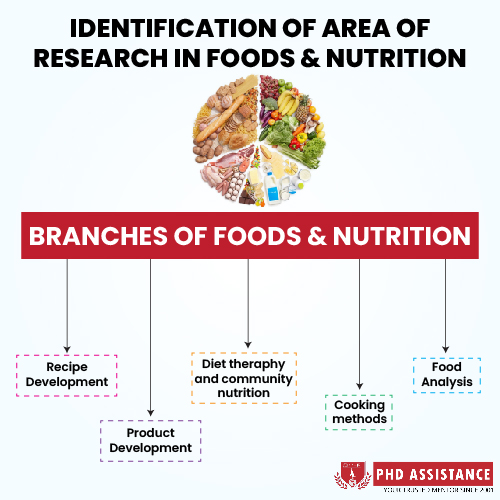Notifications
In Brief:
Formulating a food and nutrition research challenge has several advantages. The creation of a research problem precedes the start of the actual investigation. You become highly aware of the duties you must carry out to complete the investigation. You must follow a specific order to complete the process of research. You may create that order by using a food and nutrition research problem. Research problem also helps in avoiding pointless procedures in the research process.
Importance of identifying and formulating the research problem:
It is more recent to employ systematic reviews to address nutrition-related problems. Nevertheless, a systematic review approach has been employed in or is being proposed for a wide range of nutrition applications. A more complex set of research questions and guidelines for the decision-making process are required for nutrition-related topics than have typically been seen in other fields, even though many of these applications are similar to those used in medicine and public health. These characteristics include essentiality and habitual exposure. It should be noted that the phrase “systematic review” has undergone numerous revisions, including evidence-based review, systematic evidence-based review, and evidence-based systematic review, as systematic reviews are conducted and published for nutrition-related issues more often.

Unique considerations when conducting nutrition-related research problem
Various concerns that often do not come up while doing systematic reviews of medicines and related topics must be considered when reviewing nutrition-related topics.
Baseline exposure
Contrary to drug trials, participants in nutrition-related research often have some prior dietary exposure to the nutrient of interest. This exposure can come through dietary food and supplement intake or, in some circumstances, endogenous synthesis (e.g. vitamin D, vitamin K). Due to limitations in currently used assessment procedures of food consumption, insufficient nutrient databases with which nutrient intake estimates are produced, and temporal fluctuations in exposure, background levels of exposure can be challenging to quantify precisely.
Nutrient status
The reaction to nutrient supplementation can be influenced by the nutritional state of a person or group. Each nutrient requires a specialized evaluation method based on the availability of a sample specific to that nutrient and homoeostatic processes that control plasma concentrations through storage depot accretion and release.
Bioavailability of nutrients.
The bioavailability of specific nutrients might change according to a variety of reasons. These variations must be considered when measuring food intake and contrasting responses to dietary supplements.
Multiple and interrelated biological functions of a nutrient.
The majority of nutrients have several biological purposes. Clarifying the review’s nutrient-specific focus is a crucial step in the phase of the systematic review process known as research question(s) creation and refining. This frequently involves limiting the scope of the job. Numerous nutrients are necessary for some of the biological activities of nutrition.
Undefined nature of the nutrient intervention.
Nutrient treatments based on food, as opposed to those found on nutrient supplements, present unique difficulties in precisely estimating the absolute change in consumption.
The most challenging phase to complete is creating a dissertation research problem. However, it dramatically enhances the worth of conducting research. Using this approach, you may get information on current food and nutrition trends. Find out what subjects are addressed in the local journals of today. Examine incoming calls from appropriate disciplinary groups. PhD Thesis Problem Identification examines your research centre design, focuses on problems, and develops the best working strategy to address the food and nutrition industry issue. The scientific method is used to answer research issues. Hence the problem’s feasibility or research ability is more crucial than any of the aforementioned qualities.
PhD assistance could be advantageous for you in drafting a standards-compliant PhD research proposal. A crucial step in the PhD application process is writing a research proposal, which universities use to assess your suitability for their research program. Several international schools have used the research proposal to decide whether or not to accept admission offers into the DBA/Doctoral program. The study proposal should be written to give readers a positive impression of your research abilities. The research problem is the heart of a study, and it drives the research questions and provides the framework for understanding the research findings. PhD dissertation problem Identification assists you with where to look for your research problem and how to evaluate when a research problem is for success.